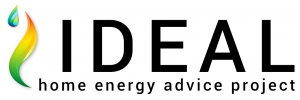Projects
Our research to date has focused on energy in buildings, both in terms of supporting efficient use, and in evaluating the potential of using smart meter data to improve wellbeing and care outcomes.
- Understanding energy through digital technology: Advancing smart meter and sensor methods to better understand patterns of energy use and the needs and services it provides. Combining these insights with survey, focus groups and interviews to explore the behavioural, sociodemographic, technological and environmental factors which influence energy demand.
- Engaging people with energy: Using Living Lab and co-design methods, designing and evaluating feedback and smart automation systems in domestic and non-domestic settings to better balance the different needs and goals of energy end users and sustainability requirements.
- Improving care outcomes: Investigating the opportunities to utilise data from smart meters, Machine Learning methods and digital feedback to indentify potential acute and chronic care support needs of vulnerable householders.
Current projects
| Feather – Facilitating health and wellbeing by developing systems for early recognition of Urinary Tract Infections. Beginning in Autumn 2022, the Feather project aims to enable wellbeing and prevent death by identifying early indicators of urinary tract infections. We believe that by working with diverse stakeholders, e.g. end-users, clinicians, policy makers including local authorities, industry experts, and members of charitable organisations, we can create new knowledge and expedite the adoption of academic output via realistic translational pathways. |
 SERL – Smart Energy Research Lab. The SERL project is facilitating secure access to smart meter data for academics for research for the public good. Within SERL, the SUSTAIN Lab team are leading the DEDEUS project, investigating patterns of energy use in Scottish households and the factors which shape that, including the impacts of the current pandemic. The aim is to provide new insights to support Scotland’s energy system transition to net zero carbon. SERL – Smart Energy Research Lab. The SERL project is facilitating secure access to smart meter data for academics for research for the public good. Within SERL, the SUSTAIN Lab team are leading the DEDEUS project, investigating patterns of energy use in Scottish households and the factors which shape that, including the impacts of the current pandemic. The aim is to provide new insights to support Scotland’s energy system transition to net zero carbon.
|
| DISPATCH – DecarbonISation PAThways for Cooling and Heating. Beginning in late 2021, the DISPATCH project focuses on identifying efficient and equitable pathways for decarbonising heating and cooling in UK domestic and small non-domestic buildings. The SUSTAIN Lab team are leading on work packages that will explore the energy use patterns of homes with a range of old and new heating technologies and, with participants, co-design innovations to support increased electricity demand flexibility to facilitate a transition from gas to electrical heating systems. Project description (external link). |
 Peoplehood. Beginning in Spring 2021, the Peoplehood project aims to explore how we can help influence healthy ageing in the community and learn what it really takes to develop thriving, healthy neighbourhoods of the future. The SUSTAIN Lab team are involved in co-creating an energy-based alert service to look at patterns and anomalies in energy use Project description (external link). |
Past projects
 SMILE – Smart Meters and Independent Living. In the SMILE project, we are investigating how smart meter data and digital user interfaces can be harnessed to more effectively support people with additional care needs, drawing on smart meter data and machine learning approaches to identify when vulnerable people may need urgent or ongoing additional care support. Project description. SMILE – Smart Meters and Independent Living. In the SMILE project, we are investigating how smart meter data and digital user interfaces can be harnessed to more effectively support people with additional care needs, drawing on smart meter data and machine learning approaches to identify when vulnerable people may need urgent or ongoing additional care support. Project description. |

IDEAL, Phases 1 and 2. In IDEAL, we explore how digital home energy feedback can be better designed to reduce end user demand, whilst maintaining or improving outcomes such as costs and adequate warmth for people. Further information. |
 BIGSMALL. Measuring and understanding domestic energy use and the factors which influence it. What are the relationships between resource inputs and outcomes? How do energy using activities shape that relationship? In BIGSMALL, we integrated sensor system and survey data, social science theory and advanced data science methods to measure the critical factors and understand their connections. Project website. BIGSMALL. Measuring and understanding domestic energy use and the factors which influence it. What are the relationships between resource inputs and outcomes? How do energy using activities shape that relationship? In BIGSMALL, we integrated sensor system and survey data, social science theory and advanced data science methods to measure the critical factors and understand their connections. Project website. |
 ENHANCE. Engaging staff with energy efficiency in non-domestic buildings. Project website. ENHANCE. Engaging staff with energy efficiency in non-domestic buildings. Project website. |
